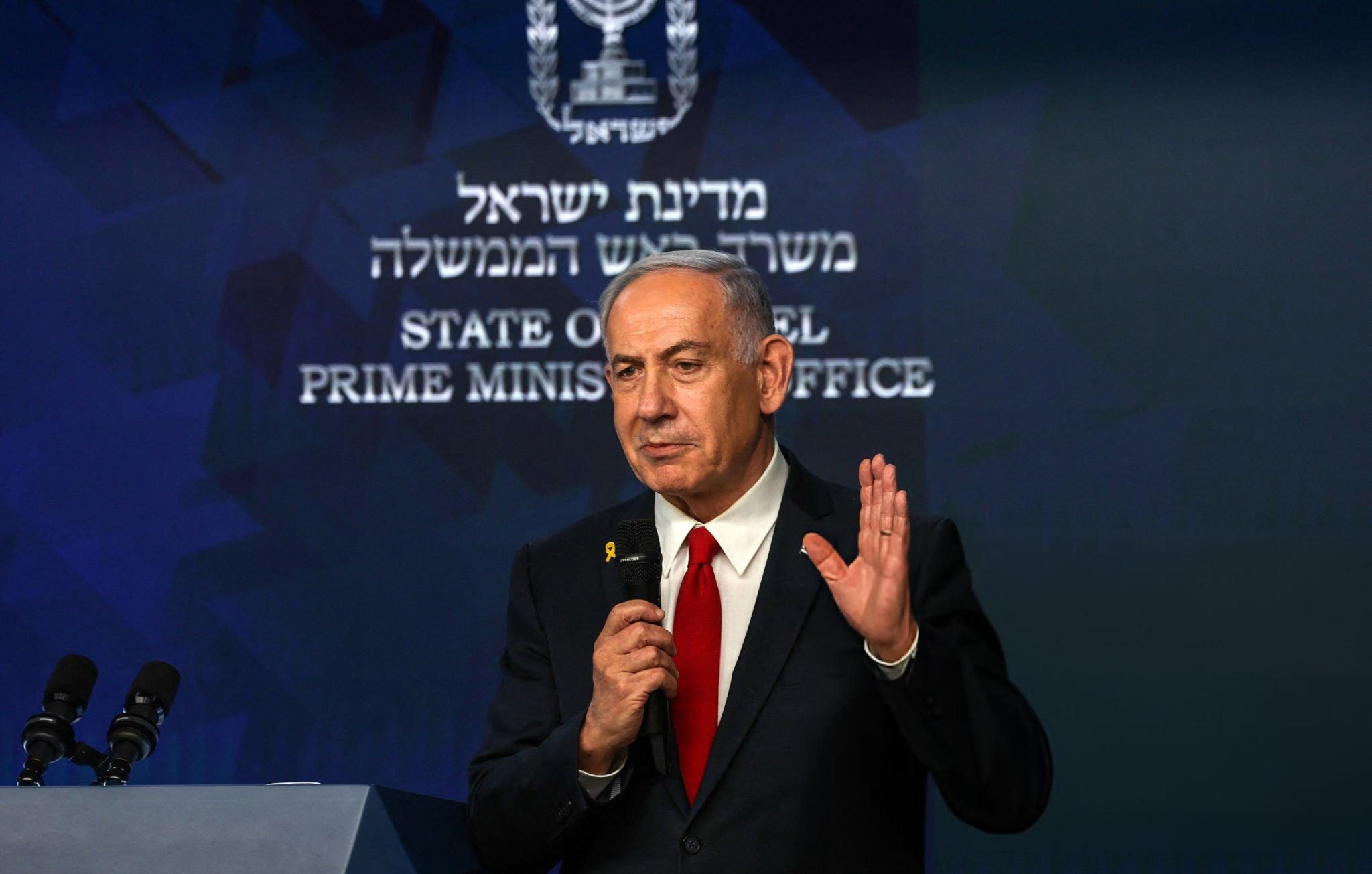Britain and France have strongly rebuffed Israeli Prime Minister Benjamin Netanyahu’s incendiary accusation that Sir Keir Starmer, Emmanuel Macron, and Canadian Prime Minister Patrick Carney are “on the wrong side of humanity” following the fatal shooting of two Israeli diplomats in Washington DC.
Netanyahu’s comments came just a day after 31-year-old Elias Rodriguez allegedly gunned down Yaron Lischinsky and Sarah Milgrim — a young couple and staffers at the Israeli embassy — shortly after they left an event at the Capital Jewish Museum. Rodriguez, who reportedly shouted “Free Palestine” inside the venue following the murders, has been charged with two counts of first-degree murder and faces the possibility of the death penalty.
Speaking on LBC Radio, Armed Forces Minister Luke Pollard rejected Netanyahu’s remarks outright. “I don’t agree with those comments,” he said. “We condemn in the fullest possible terms the murder of the Israeli diplomats in the United States. That is completely unacceptable. But our policy is grounded in humanitarian principles — pushing for an immediate ceasefire, the release of all hostages by Hamas, and vital aid for Palestinian civilians.”
Pollard went on to highlight the worsening humanitarian crisis in Gaza, calling it “unacceptable” and urging for swift international action to avert further civilian suffering.
France also hit back at the Israeli leader’s accusations. French Foreign Minister Jean-Noël Barrot reiterated Paris’s commitment to Israel’s security while branding Netanyahu’s claims “absurd and slanderous.”
“It is absurd and slanderous to accuse those advocating for a two-state solution of encouraging Hamas or antisemitism,” said Barrot. “France stands against antisemitism in all its forms and continues to support a fair and lasting peace in the region.”
Netanyahu’s outburst followed a string of critical developments this week, including Britain’s suspension of trade talks with Israel, the summoning of the Israeli ambassador in London, and fresh sanctions against extremist settlers in the West Bank.
In the aftermath of the killings in Washington, small crowds gathered outside Israel’s London embassy on Thursday evening, lighting candles and displaying pictures of the slain diplomats, who were reportedly due to be engaged.
But rather than focusing solely on the tragedy, Mr Netanyahu used the moment to direct blame at Western leaders for their increasing criticism of Israel’s military campaign in Gaza. In a statement, he accused the three leaders of being complicit in the violence by “emboldening Hamas” through their condemnation of Israel’s actions.
“They’re now proposing to establish a Palestinian state and reward these murders with the ultimate prize,” Netanyahu claimed. “For 18 years, we had a de facto Palestinian state in Gaza. Did we get peace? No. We got the most savage slaughter of Jews since the Holocaust.”
He went on to suggest that Hamas was right to thank Macron, Starmer, and Carney for urging an end to Israel’s offensive, arguing their stance effectively supports Hamas’s continued rule in Gaza.
His words sparked fresh tensions with allies, already strained over the death toll in Gaza — now exceeding 52,000 according to Palestinian health officials.
In London, Sir Keir Starmer issued a strong condemnation of the attack in Washington, stating: “Antisemitism is an evil we must stamp out wherever it appears. My thoughts are with their colleagues, family, and loved ones. I stand in solidarity with the Jewish community.”
Sir Keir, Macron, and Carney had earlier this week issued a joint letter warning that Israel’s military escalation “risks breaching international humanitarian law,” and calling the humanitarian toll in Gaza “intolerable.” The letter also demanded the immediate release of hostages taken by Hamas during the October 7 attacks, in which 1,200 Israelis were killed.
Meanwhile, the Israeli military said it had facilitated the transfer of 107 aid trucks carrying flour, medical supplies, and essential goods into Gaza on Thursday. But humanitarian agencies maintain this is woefully inadequate, urging a significant scale-up of assistance to avert a full-scale catastrophe.
As rhetoric escalates, diplomatic ties between Israel and some of its closest allies face their most serious test in years — a test that may determine the path forward for peace and justice in the region.






